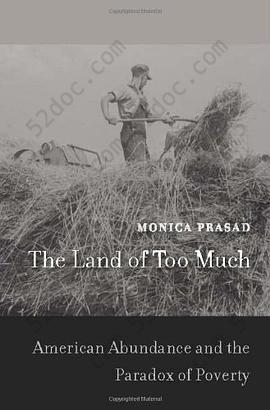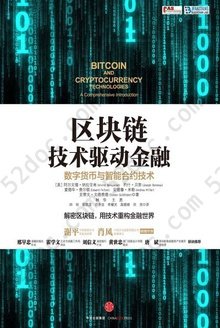注重体验与质量的电子书资源下载网站
分类于: 设计 互联网
简介

The Land of Too Much: American Abundance and the Paradox of Poverty 豆 9.6分
资源最后更新于 2020-08-26 06:47:05
作者:Monica Prasad
出版社:Harvard University Press
出版日期:2012-01
ISBN:9780674066526
文件格式: pdf
标签: 政治学 美国 社会学 政治经济学 比较政治 历史 美国政治 政治社会学
简介· · · · · ·
The Land of Too Much presents a simple but powerful hypothesis that addresses three questions: Why does the United States have more poverty than any other developed country? Why did it experience an attack on state intervention starting in the 1980s, known today as the neoliberal revolution? And why did it recently suffer the greatest economic meltdown in seventy-five years? A...
目录
List of Figures* and Tables**
Preface
Part I. Explaining American State Intervention
1. The Farmers’ Tour
2. Comparing Capitalisms
3. A Demand-Side Theory of Comparative Political Economy
Part II. The Agrarian Regulation of Taxation
4. The Non-History of National Sales Tax
5. The Land of Too Much
6. Progressive Taxation and the Welfare State
Part III. The Agrarian Regulation of Finance
7. American Adversarial Regulation
8. The Democratization of Credit
9. The Credit/Welfare State Trade-Off
Part IV. Conclusion
10. American Mortgage Keynesianism: Summary and Policy Implications
Notes
References
Acknowledgments
Index
* Figures:
2.1 Pre-tax and transfer inequality and post-tax and transfer inequality
3.1 Index of industrial production, 1870–1912
3.2 Index of agricultural output, 1869–1950
3.3 Index of manufacturing output, 1869–1941
3.4 Total GDP, 1820–1924
3.5 Wholesale commodity price index, 1848–1943
3.6 U.S. mortgage interest rates, 1869–1885
3.7 Index of agricultural output, 1889–1929
3.8 “How to see our wheat”
7.1 Restrictiveness of banking regulation before 1999
8.1 Index of activity in the building industry, 1925–1929 and 1932
10.1 Argument of the book
** Tables:
1.1 The United States compared to other industrialized countries
3.1 GDP per capita
4.1 Regional voting on sales tax in Congress, November 3 and 4, 1921, Republicans only
4.2 Regional preferences for sales tax in Congress, 1932
8.1 Regional voting on McFadden Act in House of Representatives, February 4, 1926
9.1 The demand for credit, 1980–2005
9.2 The effect of deregulation on credit for different levels of social spending
Preface
Part I. Explaining American State Intervention
1. The Farmers’ Tour
2. Comparing Capitalisms
3. A Demand-Side Theory of Comparative Political Economy
Part II. The Agrarian Regulation of Taxation
4. The Non-History of National Sales Tax
5. The Land of Too Much
6. Progressive Taxation and the Welfare State
Part III. The Agrarian Regulation of Finance
7. American Adversarial Regulation
8. The Democratization of Credit
9. The Credit/Welfare State Trade-Off
Part IV. Conclusion
10. American Mortgage Keynesianism: Summary and Policy Implications
Notes
References
Acknowledgments
Index
* Figures:
2.1 Pre-tax and transfer inequality and post-tax and transfer inequality
3.1 Index of industrial production, 1870–1912
3.2 Index of agricultural output, 1869–1950
3.3 Index of manufacturing output, 1869–1941
3.4 Total GDP, 1820–1924
3.5 Wholesale commodity price index, 1848–1943
3.6 U.S. mortgage interest rates, 1869–1885
3.7 Index of agricultural output, 1889–1929
3.8 “How to see our wheat”
7.1 Restrictiveness of banking regulation before 1999
8.1 Index of activity in the building industry, 1925–1929 and 1932
10.1 Argument of the book
** Tables:
1.1 The United States compared to other industrialized countries
3.1 GDP per capita
4.1 Regional voting on sales tax in Congress, November 3 and 4, 1921, Republicans only
4.2 Regional preferences for sales tax in Congress, 1932
8.1 Regional voting on McFadden Act in House of Representatives, February 4, 1926
9.1 The demand for credit, 1980–2005
9.2 The effect of deregulation on credit for different levels of social spending








